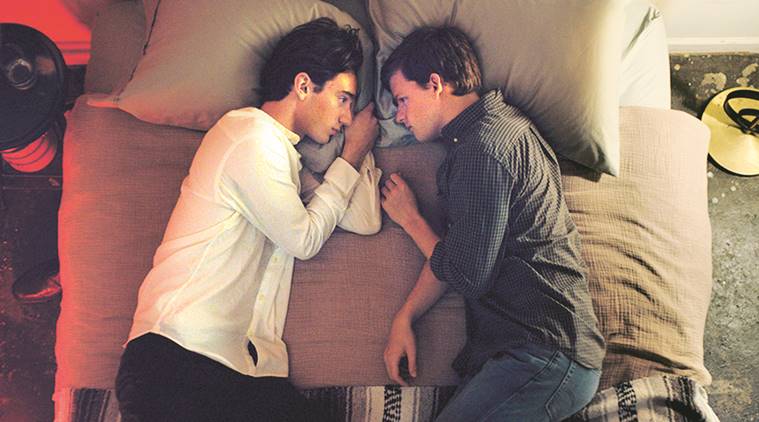43rd Toronto International Film Festival Day 7: Under the Rainbow
TIFF features the best of queer-themed cinema

A still from Boy Erased
I heard about the Supreme Court order decriminalising consensual adult gay sex as I was coming awake, half away around the world, on the opening day of the Toronto International Film Festival (TIFF). It seemed especially appropriate to be at TIFF on the day, because this is a festival which celebrates queerness and the LGBTQ community like no other.
Homosexuality as an affliction you can get rid of. As a disease you can be cured of. As something that is so vile that you can’t even mention it to your parents, who are meant to protect you, or to your friends, who may abandon you. This is the experience of many young men and women around the world, and it reminds you just how difficult it is to make peace with who you really are, and the struggle can be a long, hard one.
Day 7 at TIFF yields Boy Erased, which is about just that — a boy being erased. He is being told that the way he feels about other young men, about himself, is wrong. It is a sin in the eyes of god. This is the belief of his Arkansas-based god-fearing Christian parents, played by Russell Crowe and Nicole Kidman, and they set out to ‘cure’ their son by sending him to a ‘conversion therapy’ boot camp.
The film is based on the story of Garrard Conley, who was at hand to present the film, along with director Joel Edgerton, who casts himself in the film as the stentorian, scary figure out to tell his wards that they are wrong, and only he is right.
More than anything else, what I liked about the film is how it doesn’t demonise or judge the parents who have no tools to deal with their son’s sexuality. Crowe, almost unrecognisable under the layers of middle-aged fat, is especially impressive as a man who fears that the ‘shame’ attached to his son will impact his standing in the community. He loves his son, and yet he cannot talk to him. It is possible to live under the same roof for years, and pretend not to know. No acknowledgment is also erasure.
Kidman is getting better and better as she is growing older. She is the wife who supports her husband, and finally, she is the mother her son needs. The film, though, is carried by a command performance from Lucas Hedges as Jared, the young man who does try to change, both at the camp, and in college, because his parents want him to. As a young person learning to embrace his true self, he is earnest and committed, and achingly real.
Which is not something you can accuse the gay character who is more caricature than anything else in Crazy Rich Asians. The Warner Bros smash hit, about a bunch of jaw-droppingly wealthy Asians, is not part of the TIFF programme. This is just the kind of film that crazy rich Indians would love, so the producer’s decision to not release it in India is strange, to say the least. But it is running at a multiplex close to the festival venue, so a fellow film critic and I sneak off to catch it, all in the line of duty, of course.
It is not just the gay character who is a stereotype. Almost everyone is. The handsome prince. The Cinderalla-type princess, commoner by instinct, rich in wisdom. The prince’s mother from hell (played by a stone-faced Michelle Yeoh), all out to protect her son from gold-diggers who do not understand family values and old money. And a supporting cast which ticks all the familiar boxes, especially the ditzy female pal who is a rock for our princess, particularly when she needs a shoulder to cry on.
It is a plot Bollywood has been making variants of, for decades. And it is played out in settings Karan Johar would deeply approve of — acres of mansions, fleets of vehicles, truckloads of designer clothes and jewellery, and very few poor people.
It is not what you can call a ‘good’ film. And two hours, it feels way too stretched. But you can also see why it has done so well, and why it’s such a landmark movie. For Hollywood to devote a full film placing ‘Asians’ (and of course the Americans think that Asia extends up to Japan and China, and now to Singapore, where much of film is located) at the centre of the narrative is a remarkable shift. It is their faces, their stories, and yes, their dumplings, which play a major part in getting the prince and princess together.
Will there ever will be a ‘Crazy Rich Indians’ from a major US studio, where the lovers unite over samosas? Stranger things have happened.






















No hay comentarios:
Publicar un comentario